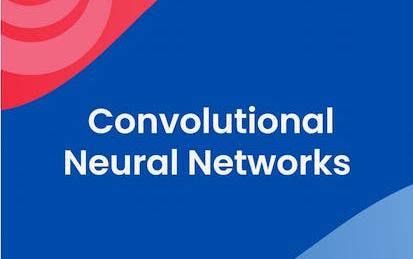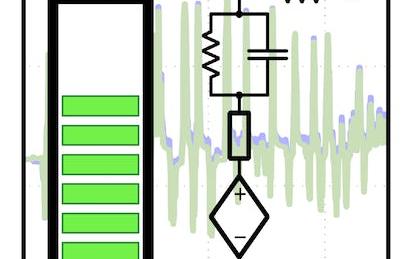

Our Courses

Precalculus: Periodic Functions
This course helps to build the foundational material to use mathematics as a tool to model, understand, and interpret the world around us. This is done through studying functions, their properties, and applications to data analysis. Concepts of precalculus provide the set of tools for the beginning student to begin their scientific career, preparing them for future science and calculus courses. This course is designed for all students, not just those interested in further mathematics courses.
-
Course by

-
 Self Paced
Self Paced
-
 9 hours
9 hours
-
 English
English

Integral Calculus and Numerical Analysis for Data Science
Are you interested in Data Science but lack the math background for it? Has math always been a tough subject that you tend to avoid? This course will provide an intuitive understanding of foundational integral calculus, including integration by parts, area under a curve, and integral computation. It will also cover root-finding methods, matrix decomposition, and partial derivatives. This course is designed to prepare learners to successfully complete Statistical Modeling for Data Science Application, which is part of CU Boulder's Master of Science in Data Science (MS-DS) program.
-
Course by

-
 Self Paced
Self Paced
-
 4 hours
4 hours
-
 English
English

Advanced Linear Models for Data Science 2: Statistical Linear Models
Welcome to the Advanced Linear Models for Data Science Class 2: Statistical Linear Models. This class is an introduction to least squares from a linear algebraic and mathematical perspective.
-
Course by

-
 Self Paced
Self Paced
-
 6 hours
6 hours
-
 English
English

Supervised Machine Learning: Regression
This course introduces you to one of the main types of modelling families of supervised Machine Learning: Regression. You will learn how to train regression models to predict continuous outcomes and how to use error metrics to compare across different models.
-
Course by

-
 Self Paced
Self Paced
-
 21 hours
21 hours
-
 English
English

Physics 102 - Electric Charges and Fields
This first course serves as an introduction to the physics of electricity and magnetism. Upon completion, learners will understand how mathematical laws and conservation principles describe fields and how these fields are related to electrical circuits. Learners will gain experience in solving physics problems with tools such as graphical analysis, algebra, vector analysis, and calculus. This first course covers Charge, Electric Forces, and Electric Fields.
-
Course by

-
 Self Paced
Self Paced
-
 22 hours
22 hours
-
 English
English

Precalculus: Relations and Functions
This course helps to build the foundational material to use mathematics as a tool to model, understand, and interpret the world around us. This is done through studying functions, their properties, and applications to data analysis. Concepts of precalculus provide the set of tools for the beginning student to begin their scientific career, preparing them for future science and calculus courses. This course is designed for all students, not just those interested in further mathematics courses.
-
Course by

-
 Self Paced
Self Paced
-
 12 hours
12 hours
-
 English
English

VLSI CAD Part II: Layout
You should complete the VLSI CAD Part I: Logic course before beginning this course. A modern VLSI chip is a remarkably complex beast: billions of transistors, millions of logic gates deployed for computation and control, big blocks of memory, embedded blocks of pre-designed functions designed by third parties (called “intellectual property” or IP blocks). How do people manage to design these complicated chips? Answer: a sequence of computer aided design (CAD) tools takes an abstract description of the chip, and refines it step-wise to a final design.
-
Course by

-
 Self Paced
Self Paced
-
 24 hours
24 hours
-
 English
English

Interest Rate Models
This course gives you an easy introduction to interest rates and related contracts. These include the LIBOR, bonds, forward rate agreements, swaps, interest rate futures, caps, floors, and swaptions. We will learn how to apply the basic tools duration and convexity for managing the interest rate risk of a bond portfolio. We will gain practice in estimating the term structure from market data. We will learn the basic facts from stochastic calculus that will enable you to engineer a large variety of stochastic interest rate models.
-
Course by

-
 Self Paced
Self Paced
-
 30 hours
30 hours
-
 English
English

Physics 102 - AC Circuits and Maxwell's Equations
This fourth course serves as an introduction to the physics of electricity and magnetism. Upon completion, learners will understand how mathematical laws and conservation principles describe fields and how these fields are related to electrical circuits. Learners will gain experience in solving physics problems with tools such as graphical analysis, algebra, vector analysis, and calculus. This fourth course covers AC circuits, Impedance, and Magnetism.
-
Course by

-
 Self Paced
Self Paced
-
 18 hours
18 hours
-
 English
English

Bayesian Statistics: Time Series Analysis
This course for practicing and aspiring data scientists and statisticians. It is the fourth of a four-course sequence introducing the fundamentals of Bayesian statistics. It builds on the course Bayesian Statistics: From Concept to Data Analysis, Techniques and Models, and Mixture models. Time series analysis is concerned with modeling the dependency among elements of a sequence of temporally related variables. To succeed in this course, you should be familiar with calculus-based probability, the principles of maximum likelihood estimation, and Bayesian inference.
-
Course by

-
 Self Paced
Self Paced
-
 22 hours
22 hours
-
 English
English

Unsupervised Algorithms in Machine Learning
One of the most useful areas in machine learning is discovering hidden patterns from unlabeled data. Add the fundamentals of this in-demand skill to your Data Science toolkit. In this course, we will learn selected unsupervised learning methods for dimensionality reduction, clustering, and learning latent features. We will also focus on real-world applications such as recommender systems with hands-on examples of product recommendation algorithms. Prior coding or scripting knowledge is required. We will be utilizing Python extensively throughout the course.
-
Course by

-
 Self Paced
Self Paced
-
 38 hours
38 hours
-
 English
English

Çok değişkenli Fonksiyon II: Uygulamalar / Multivariable Calculus II: Applications
Ders çok değişkenli fonksiyonlardaki iki derslik dizinin ikincisidir. Birinci ders türev ve entegral kavramlarını geliştirmekte ve bu konulardaki problemleri temel çözme yöntemlerini sunmaktadır. Bu ders, birinci derste geliştirilen temeller üzerine daha ileri konuları işlemekte ve daha kapsamlı uygulamalar ve çözümlü örnekler sunmaktadır.
-
Course by

-
 Self Paced
Self Paced
-
 Turkish
Turkish

The Finite Element Method for Problems in Physics
This course is an introduction to the finite element method as applicable to a range of problems in physics and engineering sciences. The treatment is mathematical, but only for the purpose of clarifying the formulation. The emphasis is on coding up the formulations in a modern, open-source environment that can be expanded to other applications, subsequently. The course includes about 45 hours of lectures covering the material I normally teach in an introductory graduate class at University of Michigan.
-
Course by

-
 Self Paced
Self Paced
-
 62 hours
62 hours
-
 English
English

Matrix Algebra for Engineers
This course is all about matrices, and concisely covers the linear algebra that an engineer should know. The mathematics in this course is presented at the level of an advanced high school student, but it is recommended that students take this course after completing a university-level single variable calculus course. There are no derivatives or integrals involved, but students are expected to have a basic level of mathematical maturity.
-
Course by

-
 Self Paced
Self Paced
-
 20 hours
20 hours
-
 English
English

Pricing Options with Mathematical Models
This is an introductory course on options and other financial derivatives, and their applications to risk management. We will start with defining derivatives and options, continue with discrete-time, binomial tree models, and then develop continuous-time, Brownian Motion models. A basic introduction to Stochastic, Ito Calculus will be given. The benchmark model will be the Black-Scholes-Merton pricing model, but we will also discuss more general models, such as stochastic volatility models.
-
Course by

-
 Self Paced
Self Paced
-
 69 hours
69 hours
-
 English
English

Natural Language Processing with Attention Models
In Course 4 of the Natural Language Processing Specialization, you will: a) Translate complete English sentences into Portuguese using an encoder-decoder attention model, b) Build a Transformer model to summarize text, c) Use T5 and BERT models to perform question-answering. By the end of this Specialization, you will have designed NLP applications that perform question-answering and sentiment analysis, and created tools to translate languages and summarize text! Learners should have a working knowledge of machine learning, intermediate Python including experience with a deep learning fra
-
Course by

-
 Self Paced
Self Paced
-
 35 hours
35 hours
-
 English
English

Mathematics for Machine Learning: Multivariate Calculus
This course offers a brief introduction to the multivariate calculus required to build many common machine learning techniques. We start at the very beginning with a refresher on the “rise over run” formulation of a slope, before converting this to the formal definition of the gradient of a function. We then start to build up a set of tools for making calculus easier and faster. Next, we learn how to calculate vectors that point up hill on multidimensional surfaces and even put this into action using an interactive game.
-
Course by

-
 Self Paced
Self Paced
-
 18 hours
18 hours
-
 English
English

Introduction to Calculus
The focus and themes of the Introduction to Calculus course address the most important foundations for applications of mathematics in science, engineering and commerce. The course emphasises the key ideas and historical motivation for calculus, while at the same time striking a balance between theory and application, leading to a mastery of key threshold concepts in foundational mathematics.
-
Course by

-
 Self Paced
Self Paced
-
 59 hours
59 hours
-
 English
English

Exploratory Data Analysis for Machine Learning
This first course in the IBM Machine Learning Professional Certificate introduces you to Machine Learning and the content of the professional certificate. In this course you will realize the importance of good, quality data.
-
Course by

-
 Self Paced
Self Paced
-
 14 hours
14 hours
-
 English
English

Vector Calculus for Engineers
This course covers both the theoretical foundations and practical applications of Vector Calculus. During the first week, students will learn about scalar and vector fields. In the second week, they will differentiate fields. The third week focuses on multidimensional integration and curvilinear coordinate systems. Line and surface integrals are covered in the fourth week, while the fifth week explores the fundamental theorems of vector calculus, including the gradient theorem, the divergence theorem, and Stokes' theorem.
-
Course by

-
 Self Paced
Self Paced
-
 30 hours
30 hours
-
 English
English

Single Variable Calculus
Calculus is one of the grandest achievements of human thought, explaining everything from planetary orbits to the optimal size of a city to the periodicity of a heartbeat. This brisk course covers the core ideas of single-variable Calculus with emphases on conceptual understanding and applications. The course is ideal for students beginning in the engineering, physical, and social sciences.
-
Course by

-
 Self Paced
Self Paced
-
 14 hours
14 hours
-
 English
English
Model Thinking
We live in a complex world with diverse people, firms, and governments whose behaviors aggregate to produce novel, unexpected phenomena. We see political uprisings, market crashes, and a never ending array of social trends. How do we make sense of it? Models. Evidence shows that people who think with models consistently outperform those who don't. And, moreover people who think with lots of models outperform people who use only one. Why do models make us better thinkers?
-
Course by

-
 Self Paced
Self Paced
-
 27 hours
27 hours
-
 English
English

Bayesian Statistics: Mixture Models
Bayesian Statistics: Mixture Models introduces you to an important class of statistical models. The course is organized in five modules, each of which contains lecture videos, short quizzes, background reading, discussion prompts, and one or more peer-reviewed assignments. Statistics is best learned by doing it, not just watching a video, so the course is structured to help you learn through application. Some exercises require the use of R, a freely-available statistical software package.
-
Course by

-
 Self Paced
Self Paced
-
 22 hours
22 hours
-
 English
English

State Estimation and Localization for Self-Driving Cars
Welcome to State Estimation and Localization for Self-Driving Cars, the second course in University of Toronto’s Self-Driving Cars Specialization. We recommend you take the first course in the Specialization prior to taking this course. This course will introduce you to the different sensors and how we can use them for state estimation and localization in a self-driving car.
-
Course by

-
 Self Paced
Self Paced
-
 27 hours
27 hours
-
 English
English

Introduction to Statistics & Data Analysis in Public Health
Welcome to Introduction to Statistics & Data Analysis in Public Health! This course will teach you the core building blocks of statistical analysis - types of variables, common distributions, hypothesis testing - but, more than that, it will enable you to take a data set you've never seen before, describe its keys features, get to know its strengths and quirks, run some vital basic analyses and then formulate and test hypotheses based on means and proportions. You'll then have a solid grounding to move on to more sophisticated analysis and take the other courses in the series.
-
Course by

-
 Self Paced
Self Paced
-
 16 hours
16 hours
-
 English
English



